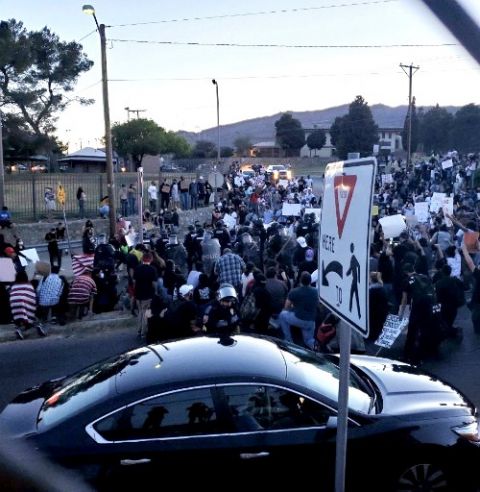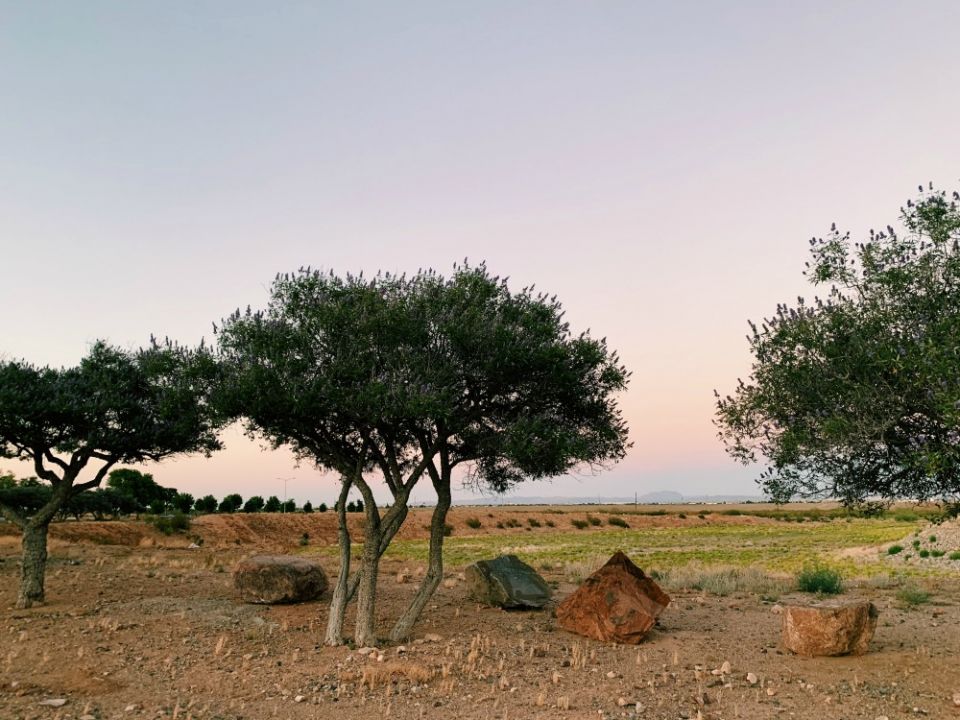Editor's note: Notes from the Field includes reports from young people volunteering in ministries of Catholic sisters. A partnership with Catholic Volunteer Network, the project began in the summer of 2015. This is our 11th round of bloggers: Celine Reinoso is a Loretto Volunteer in El Paso, Texas, and Maria Longo is a Notre Dame AmeriCorps volunteer in the Bronx, New York. This is Celine's final blog post.
El Paso, Texas — "Four more weeks," my roommate Kiara says. She's been keeping track of how much time we still have in El Paso. The marks we have left in our home over the last 10 months are slowly disappearing and being packed away as we prepare for the next community of volunteers.
This melancholy, coupled with the dread of caring about the world in its current state, has made moving forward difficult to imagine. I have always found comfort in structure: at school, going to work, and even in my daily routine.
From elementary and high school, I looked toward a higher education at a good university. Then, at university, I sought growth and change each year — within my hobbies, friendships, interests and professional goals. After university, I hoped to unlearn my own patterns and behaviors that were conditioned through the lens of patriarchy and whiteness. Going into my service year, I intended to find answers to the hundreds of questions I had about myself, but more importantly, about the world. But at the end of the year, now that I've heard hundreds of answers, I leave with a thousand more questions.
Working at a transitional shelter that fosters empowerment, and witnessing the heart of my supervisor and shelter case manager, Naomi, quickly showed me that I want to be a social worker. With that, I have the answer to my role and responsibility in activism and social justice. However, the past four months have challenged me in every way to envision a world I believe is just.
As a future social welfare professional, before the COVID-19 pandemic, I dreamed of a health care system that holistically supported the complexity of human beings. While I gained experience and prepared to study social work, I kept my eyes on the hope that when I have my own clients, they will all be given equal access to services regardless of gender, income, background, personal history or identity.
However, the pandemic has stifled my hope for that quality of social services because it became undeniable that the lives of low-income people, Black people, Indigenous people and people of color were disproportionately affected. The reality of centuries of discrimination in health care, which should be a human right, makes me wonder if my dream is even something I will witness in this lifetime.
Advertisement
Advertisement
Daily walks around my neighborhood have kept my mind at ease during isolation. I often looked forward to my hour at sunset reserved for the mountains and sounds of nature. When Ahmaud Arbery was murdered while jogging through his neighborhood, I let my walks honor him and dedicated an hour to the significance of his death in our white supremacist country. Most of all, I never stopped reminding myself that I, a white-passing, Asian American, cisgender woman, would never be murdered for jogging in my own neighborhood.
Every time a Black life is taken by the hands of law enforcement officers, thousands of people mourn and grieve for the loss of an innocent life.
The tears shed for Ahmaud were not yet dry when Breonna Taylor was shot at least eight times in her own bedroom by police officers. A judge had signed a no-knock warrant to allow these officers to enter her home without warning simply because her address had been suspected as a location used to sell drugs. I can't imagine a judge approving a warrant to enter a home owned by a single 26-year-old woman who worked as a medical professional if she were white.
I was on a call with my friend the day after George Floyd was choked by a police officer's knee and killed for being accused of forgery. The topic of grief and the many ways to express it, depending on the person, came into our conversation. Among the ways we imagined one could grieve, I found myself wondering if I had been grieving for the lives of Ahmaud, Breonna and George in the way I wanted to.
Through therapy, I realized a pattern in myself. When I didn't want to deal with a certain negative emotion or understand how to not let it control me, I would repress it and pretend it went away. I found myself repressing my anger and grief for murdered Black lives. I didn't know how to control the emotions and turn them into something useful. My privilege allowed me to turn away from the exact feeling Black and brown bodies live in every day. It was unacceptable.
Photo 2 CROP.jpg

For me and for many other activists for Black lives, George Floyd's death was only a public representation of what has been happening in our country for the past 400 years. I realized that my grief must look like emotion turned into action.
The weekend after George's murder, I attended the protest for Black lives at the offices of the El Paso Police Department. I am continuing to educate myself, my peers and my (mostly) conservative and racist family members when I am unable to march, donate and contact government officials.
It is not a smooth process. I first must unlearn how I have been complicit in upholding white supremacy as a non-Black woman of color. I must understand that because of how the United States was built — on the backs of enslaved Black and Indigenous people — fighting for human rights in this country is extremely difficult and emotional.
But while I am crying, grieving and reading about white supremacy in America, low-income people, Black people, Indigenous people and people of color are being murdered simply for who they are. It's horrifying that despite all the public unrest and clear admonition of law enforcement, Black people, especially Black trans people, are still being murdered every single day.
It's not a coincidence that my worldview has shifted at the end of my service year. I began this program with the hope to grow, be challenged and understand why so many people are victims of violence in a country that promises "life, liberty and the pursuit of happiness." I have dedicated this past year to social justice and building myself a toolkit to use moving forward as an advocate for human rights.
For the first time, I am not fearful of what I'm going to do next or of the uncertainty that comes with life. I am ready because my service year has set me up for an entire life of activism — and we all know it will take at least that long to abolish the patriarchy and white supremacy.
[Celine Reinoso is a Loretto Volunteer in El Paso, Texas, working at Villa Maria, a transitional homeless shelter for women.]
Like what you're reading? Sign up for GSR e-newsletters!


